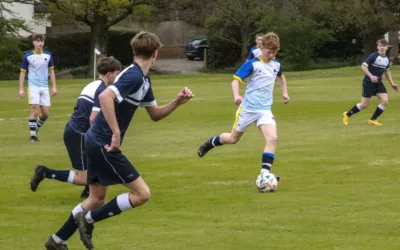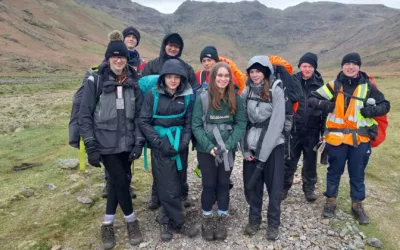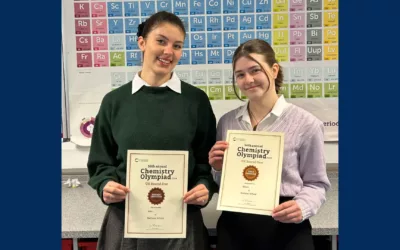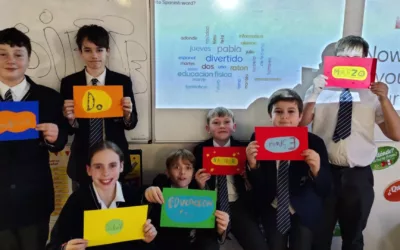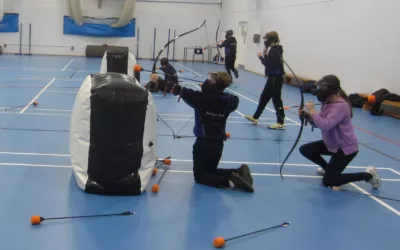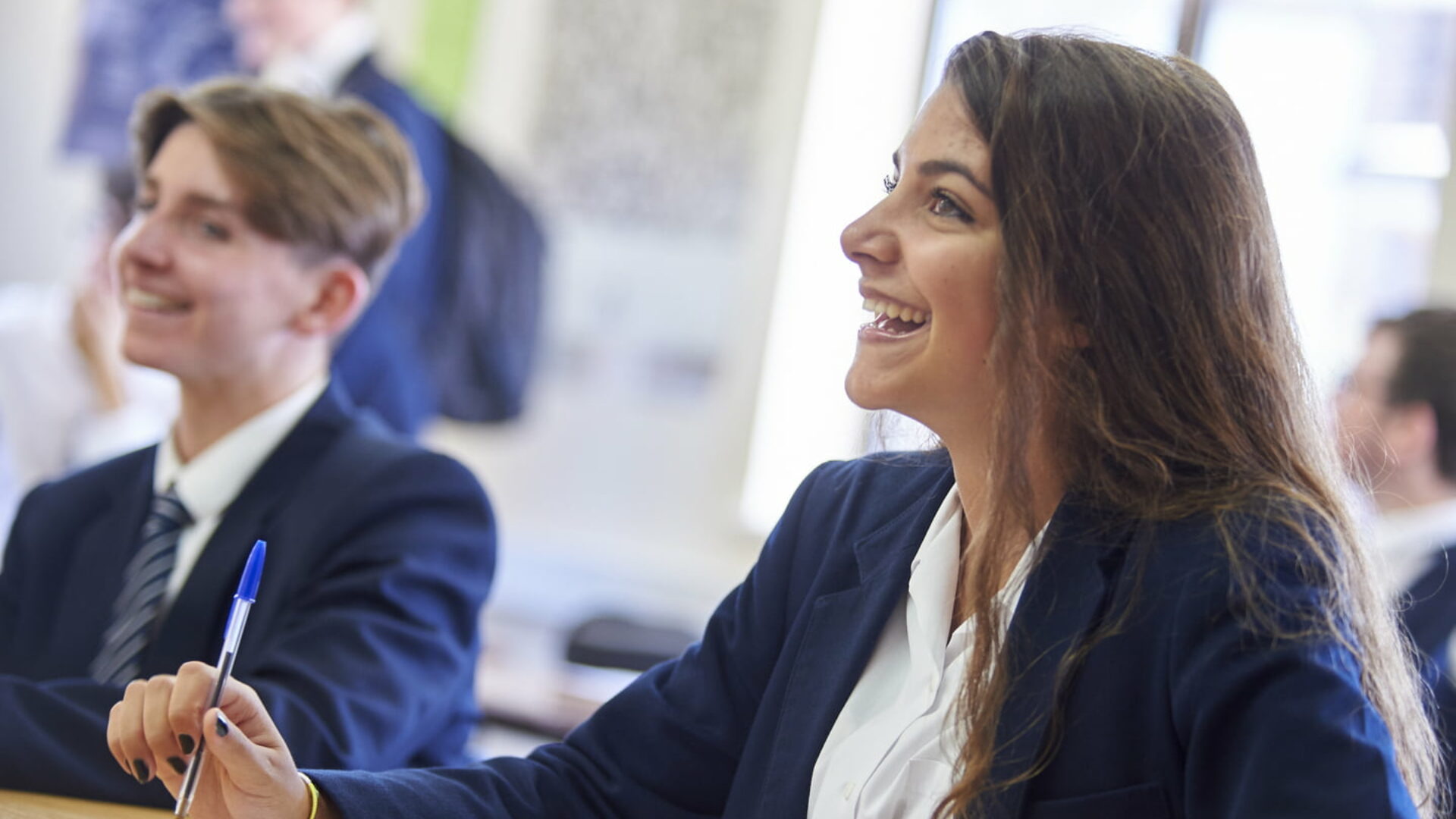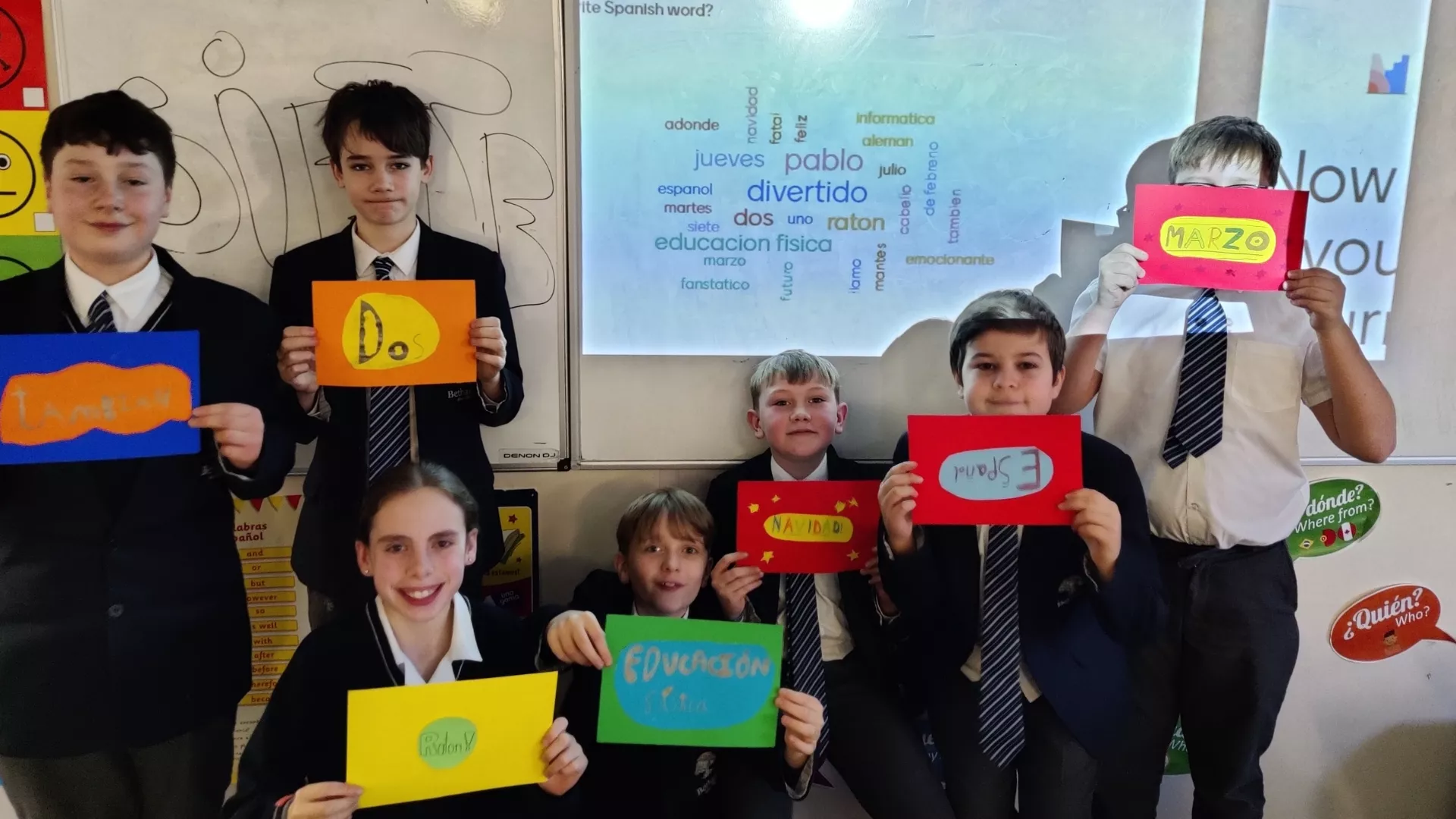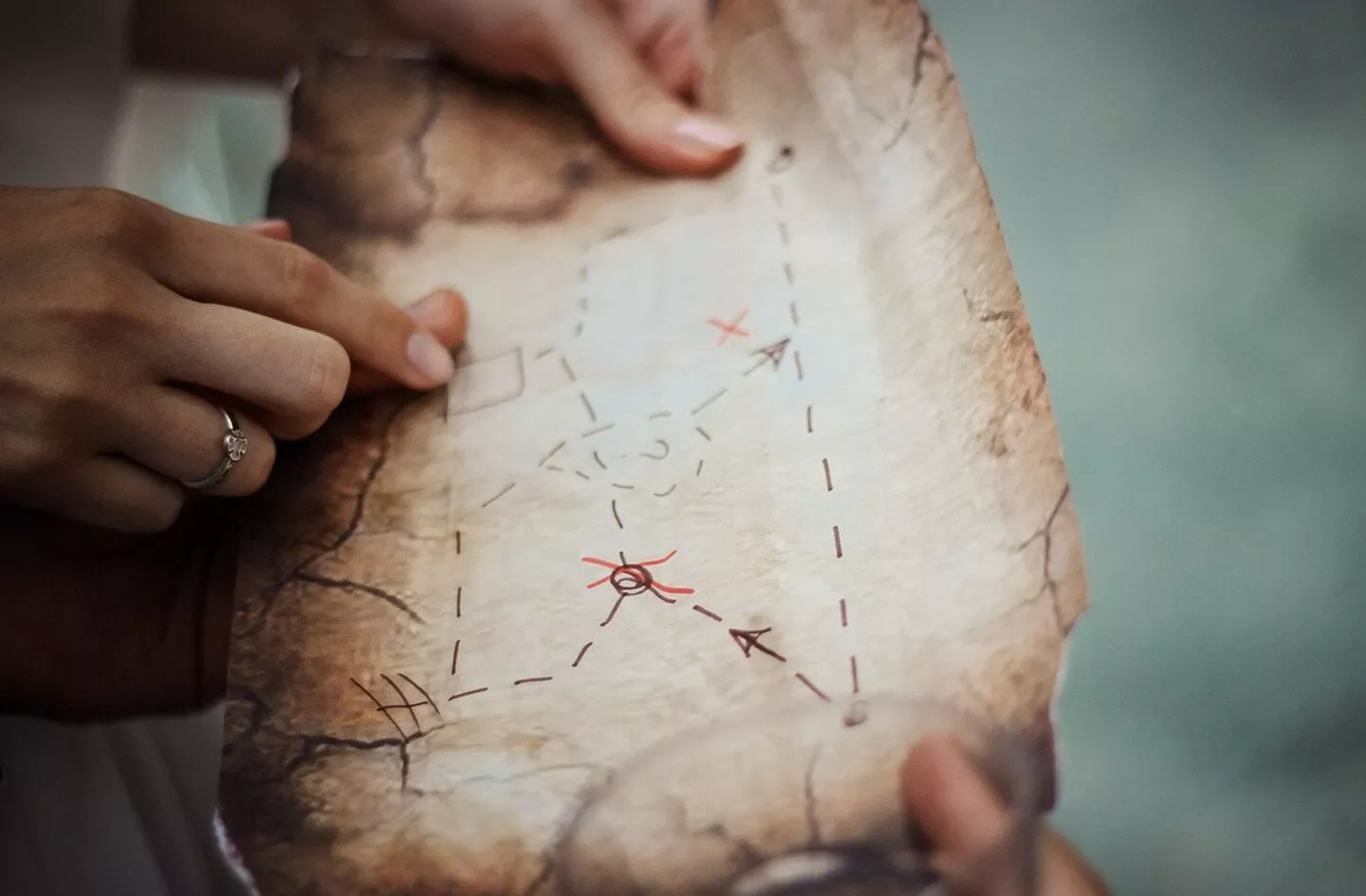In Modern Foreign Languages (MFL), we are constantly looking for ways to deliver the curriculum using innovative and collaborative methods.
This has become increasingly important as we have moved into remote teaching and learning, in the hope that pupils continue to be engaged and enthusiastic, as well as taking responsibility for, and ownership of their own learning. This was particularly successful over the Easter holidays when pupils undertook language specific challenges created by the British Council. Many of these were open ended and gave pupils the opportunity to deepen their knowledge and understanding of the languages they are learning.
In Mandarin, Year 10 pupils have taken on a teacher challenge, revising vocabulary by creating their own PowerPoint lessons with recorded audio to be used with Years 7 and 8. In Spanish, pupils have turned detective, watching a comedy series and looking for leads to find a criminal!
In French, Year 7 have used Microsoft Teams’ video call function to collaboratively (and competitively) work on finding ten items in an around-the-house Treasure Hunt. Items have ranged from un oreiller (a pillow) to trois fourchettes (three forks). Teams have had to work together to find out what the items are, and then decide on a plan of action to find the items between them in the shortest possible time. This has become an eagerly anticipated weekly fixture and the teams are now compiling lists of items for other teams to find!
Year 8 have created exciting and interactive presentations on www.buncee.com, and used www.flipgrid.com, to record videos in French about themselves. They then developed key evaluation skills by watching each other’s videos and leaving verbal feedback.
Year 9 and 10 have been using www.wakelet.com, a free website where anyone over the age of 13 can create multiple collections, on any topic. Any content can be bookmarked within a collection and can be shared for collaboration. It is also available as an app, so can be really useful for ad hoc and spontaneous web link search and saves.
Sophie Lumsden and Charlotte Ensor in Year 10 willingly agreed to be the first ever Bethany Wakelet Student Ambassadors and started their journey over the Easter holidays. The Student Ambassador programme consists of six tasks, Curation, Critical Thinking, Creativity, Collaboration, Communication and Citizenship. The programme is designed to help pupils gain valuable digital citizenship skills to enhance their future prospects, whilst becoming pupil leaders.
Charlotte and Sophie have already completed the first task, creating a Wakelet account and a Wakelet collection for curating information.
“I have recently been trying out Wakelet and I can confidently say that I will be using this in the future. I think it is a very simple app to use and is good for a range of lessons. It is also very useful for revision as you can attach diagrams and videos to have a better understanding of your topic. I also have the ability to visit my friends’ Wakelets to share information and presentations on the topic.” Sophie Lumsden
“I have been enjoying using Wakelet because I feel it is an easy way to organise your work. It is simple to use and it keeps everything neat and organised. It makes online lessons easier because you can keep all your resources in the same place. I will use this to help me organise my work for my GCSEs, it means that I can collaborate with friends and share revision pages.” Charlotte Ensor
All Year 9 French pupils have also finished the Curation task, writing about themselves, their hobbies and interests in French and have evaluated each other’s collections.
The second Student Ambassador task requires the use of critical thinking to find and evaluate multiple sources of information, and apply them to different sides of an issue. Future tasks will include evaluating current events, collaborating on collections and demonstrating their digital citizenship.
Their final challenge will be to create a digital portfolio on Wakelet. They will add collections, showcasing their best school moments, achievements, experience and hobbies. As part of this valuable exercise, they will research examples of digital portfolios, thinking about what type of information to include and looking at the difference between LinkedIn and a basic résumé. They will then be official certificated Wakelet Student Ambassadors, ready to train other pupils on how to use Wakelet!
